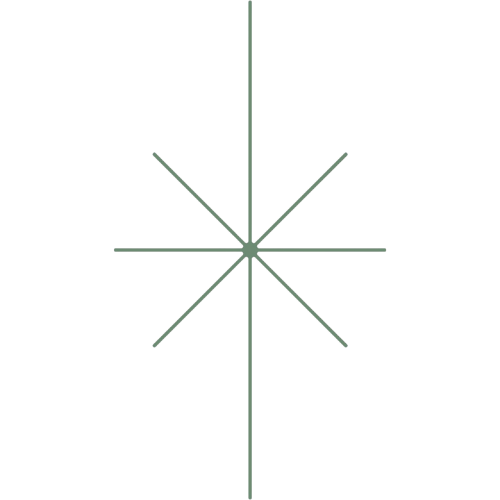FAQs
-
ICF defines coaching as “partnering with clients in a thought-provoking and creative process that inspires them to maximize their personal and professional potential. The process of coaching often unlocks previously untapped sources of imagination, productivity and leadership. We all have goals we want to reach, challenges we’re striving to overcome and times when we feel stuck. Partnering with a coach can change your life, setting you on a path to greater personal and professional fulfillment.”
International Coach Federation (ICF)
-
We typically meet for 1 hour. You will decide ( if needed, with my guidance) what area you’d like to focus on for the session, then pointing the compass to your North Star (aka your truest self ), we navigate with insightful questions & cool navigation tools (I come equipped!) Sometimes the direction changes. You’re in charge! I will follow you and perhaps suggest some stops along the path! We finish with a re-cap and insights for you to take & apply till we meet again.
-
So now that we know what coaching is, let us look at what coaching is not. There has been so much misunderstanding and confusion on what coaching actually is amongst people unfamiliar to the field of coaching. To help better understand the differences between coaching and the professions below, the following information has been provided:
1. Therapy or Counseling: Therapy typically focuses on healing the wounds of the past. It deals with healing pain, dysfunction, and conflict within an individual or in relationships. The focus is often on resolving difficulties arising from the past that hinders or obstructs an individual’s emotional functioning in the present, improving overall psychological functioning, and dealing with the present in more emotionally healthy ways. Coaching, on the other hand, supports personal and professional growth. It focuses primarily on the future. Coaching is for those who are emotionally and mentally healthy and ready to grow. The emphasis on a coaching relationship is on action, accountability, and follow-through.
2. Mentoring: Mentoring has to do with providing advice and solutions to the challenges clients are facing. A mentor is an expert who provides wisdom and guidance based on his or her own experience. The coaching process does not include advising or counseling but focuses instead on the individual or group to reach their own objectives.
3. Training: Unlike coaching, training sessions are usually learning focused. They are structured, formal and typically done in group settings. It involves the imparting or transferring of knowledge from the trainer to the client through writing, instruction, hands-on projects, etc. Coaching is more development-focused and done often in a group or individual setting. With training, there may be an assessment at the end of the training to evaluate whether the participant or client has gained a thorough understanding of the subject matter.
The most substantial thing to obtain from the definition of coaching by ICF is the act of partnering with your client in a thought-provoking and creative process which means being able to cause your clients to ponder or reflect deeply about their situation; resulting in them eagerly implementing the appropriate actions to achieve their desired outcomes.
-
The word somatics comes from the Greek root soma, which means “the living body in its wholeness.”
Your body is a highly intelligent “self,” and by reconnecting your body with your thinking self you create a powerful offer in the world. Being embodied allows you to believe and trust in your competence.
Somatic work It is a process in which one embodies new practices to be able to create a body of action. It is a unique coaching style that brings the body forward as an advocate in creating a place for change and transformation.
Self and body are indistinguishable, so if you affect the body you affect the self. Somatic coaching teaches you to become a keen observer of how you think, the stories and narratives that run through your head, your mood and emotion, and the sensations that are happening in your body, your self.
Somatic coaching works through the body with customized, ongoing practices that shift the body to support you to be the offer you want to be in the world.
Through somatic coaching, we work to literally reshape or rebuild your body by disorganizing the old shape through conversation, bodily practices and, when possible, bodywork. This interrupts the old pattern, and in doing this you begin to reorganize your body (actually reshape it) so that you are then able to create the passion and volition needed to support your being on your purpose!
Studio sessions can be done in a 1:1 format or with a group.
-
Academic Credentials
Certificate in Exercise Management
Certificate in Workplace Facilitation and Education
Diploma in Liberal Arts
BA (Integrated studies in Kinesiology & Adult Education)
Graduate Certificate in Mindfulness-Based Teaching & Learning. (Thesis: Somatic Integration in Mindfulness-Based Teaching/Coaching Leadership)
Post Graduate Studies in Dance/Movement Therapy & Expressive Arts
Professional CertificationsCertified Martha Beck Wayfinder Life Coach (ICF accredited training)
Certified MBTI Practioner (Myers-Briggs Type Indicator)
Coaching Out of the Box ® Licenced Trainer
Certified Holistic Wellness Coach (IAWP- International Association of Wellness Professionals)
Certified Pilates Practitioner (STOTT / BASI)

